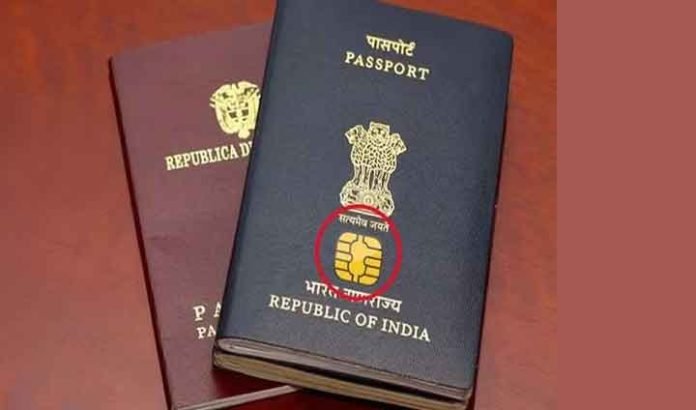
New Delhi / Dubai: India has officially begun issuing biometric chip-enabled e-passports, marking a major milestone in the country’s transition to secure digital travel documentation. The rollout, led by the Ministry of External Affairs (MEA), aims to enhance identity verification, reduce fraud, and align India with international e-passport standards.
🔐 Embedded Chip for Greater Security
The new e-passports feature a tamper-proof electronic microchip embedded within the back cover. The chip stores key biometric data — including fingerprints, iris scans, and the passport holder’s photograph — which can be authenticated electronically at airports and border control systems worldwide.
Officials say the system significantly improves data protection and global interoperability, ensuring smoother verification under ICAO (International Civil Aviation Organization) standards.
“The e-passport is a digital upgrade to India’s travel identity system — combining security, convenience, and speed,” said S. Jaishankar, India’s Minister of External Affairs.
🌍 Global Rollout and Indian Diaspora Access
The initiative has already been extended to Indian embassies and consulates abroad, including those in the UAE, UK, and the United States, ensuring that overseas Indians can also apply for or renew e-passports.
The Indian Embassy in Abu Dhabi confirmed that applications for the new biometric passports are now open, with issuances expected to ramp up in early 2026.
✈️ Faster Airport Verification
Travelers carrying e-passports will experience reduced immigration wait times, as smart e-gates at international airports can read the chip’s biometric data in seconds.
The system helps prevent identity theft, duplication, and tampering, while also streamlining entry-exit records and visa integration in the long run.
🧭 Tech Integration and Future Plans
Developed in collaboration with India Security Press, Nashik, the e-passports use cryptographically signed chips to prevent unauthorized data access.
Officials say future versions may also integrate with DigiLocker and India’s Digital ID ecosystem, making passport renewal and travel documentation entirely digital.
💬 Analysts’ Take
Experts see the rollout as part of India’s “Digital Governance 2030” roadmap — a plan to modernize citizen services through technology and secure data infrastructure.
“With chip-enabled passports, India joins the ranks of advanced digital economies in travel documentation,” said a cybersecurity analyst from the Observer Research Foundation (ORF).















